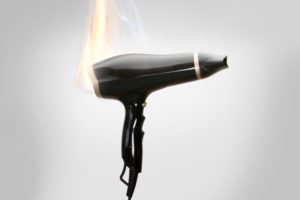
Notice: At this time we are no longer accepting cases related to Zantac cancer claims. However, if you have questions about other mass tort or personal injury cases that we are currently accepting, please call or fill out our case evaluation form.
A multidistrict litigation (MDL) has been filed based on a link between the popular heartburn medication Zantac and various cancers. According to MDL 2924, dangerous levels of the chemical compound N-Nitrosodimethylamine (NDMA) have been found in Zantac and other ranitidine drugs.
As a result, the kind of cancer Zantac could cause includes:
- Stomach cancer
- Esophageal cancer
- Liver cancer
- Bladder cancer
- Kidney cancer
- Pancreatic cancer
- Intestinal cancer
If you or a loved one developed one of these cancers after using Zantac, you could join the MDL and seek compensation for your losses.
Understanding the Dangers of NDMA
The Environmental Protection Agency (EPA) categorizes NDMA as a “probable carcinogen” to humans. In fact, scientists primarily use NDMA to induce tumors in laboratory animals for the study of tumor-fighting treatments, according to the PubChem Compound Summary for CID 6124, N-Nitrosodimethylamine.
The EPA also states that NDMA:
- Is a chemical used in the production of rocket fuel, as well as “copolymers,” which may include rubber
- Can be a byproduct of wastewater and may be found at wastewater treatment plants
- Is listed as a “priority pollutant” that the EPA takes seriously as a potential human health hazard
It has now become clear that NDMA is present in Zantac and its generic version ranitidine, meaning these drugs could cause different kinds of cancer.
The Connection Between NDMA, Zantac, and Ranitidine
In 2020, the U.S. Food and Drug Administration (FDA) issued warnings about NDMA’s presence in Zantac and other drugs containing the ingredient ranitidine. Testing revealed that over time, the amount of NDMA in these drugs can increase to levels well beyond what the FDA considers safe.
On April 1, 2020, the FDA officially requested the recall of all products containing ranitidine, Zantac included, because of the possibility that ranitidine’s breakdown in the body could produce unsafe levels of NDMA.
Still, ranitidine has been available on the consumer market for many years. As a result, those who have already consumed the drug and suffered adverse health effects have started taking legal action.
It took Decades to Reveal Zantac’s Health Risks
How did ranitidine and Zantac last on the market for decades? According to Reuters:
- The FDA approved Zantac for sale to consumers in 1983.
- Zantac became the world’s most lucrative drug by 1988.
- It became available in generic versions, such as ranitidine, in 1997.
- Many of the world’s largest pharmaceutical manufacturers widely produced the drug between 2004 and 2017.
- Zantac was noted for its potential health hazards in 2019, more than 30 years after the FDA’s approval and the drug’s initial release.
This timeline makes it clear that multiple parties failed to spot and warn consumers of what now appears to be critical flaws in Zantac and ranitidine. Some of those parties include:
- The FDA
- Regulators in other countries across the globe where Zantac has been widely sold and consumed
- Manufacturers of Zantac and other equivalents containing ranitidine, which include GlaxoSmithKline, Johnson & Johnson, Sanofi SA, and Boehringer Ingelheim Pharmaceuticals, according to Reuters
If you or a loved one developed one of the cancers that have been associated with NDMA after taking any medication associated with ranitidine, you could qualify to bring a lawsuit or join the current MDL.
Laborde Earles injury was great for me they took care of me very fast and professional. If for any reason I need legal help they will be who I use.
ClientYou Could Recover Compensation for Zantac-Related Cancer
Cancer diagnoses can be emotionally and financially draining. Whether you or a loved one received such a diagnosis, your family could suffer various damages. When you file a lawsuit or join an MDL, you have an opportunity to recover compensation for those damages from the liable parties—in this case, the manufacturers of Zantac and other drugs with ranitidine.
If your lawsuit is successful, you could collect compensation for damages like:
- Medical expenses related to treating your or your loved one’s cancer
- Pain and suffering (physical and mental)
- Income you have lost because of your illness or household income your loved one can no longer contribute
- Losses associated with a loved one’s death, such as loss of companionship and guidance
- The cost of hiring in-home help
- Funeral and burial expenses for your loved one
- Any additional losses you have suffered that could be linked to ranitidine consumption
Our attorneys take great care when building a compensation case for a client. We take the time to identify the unique damages you and your family face to ensure we leave nothing out of your claim. Our team then calculates the value of these damages so that we know how much to seek from the liable party.
I thank God for Digger & David. I don’t know what we would have done if it hadn’t have been for them.
Rick Smith | ClientOur Defective Product Lawyers Can Represent You
Hiring an attorney can be helpful if you believe you or a loved one developed cancer due to Zantac use or a similar medication. When our team represents a client, we set out to handle every aspect of their case to reduce their legal burden.
For example, a lawyer from our firm could assist you by:
- Listening to your account of taking Zantac or another medication, receiving a cancer diagnosis, and the damages you have experienced as a result
- Advising you of your legal options, such as your eligibility to join an existing lawsuit or bring a lawsuit of your own
- Collecting evidence related to the use of Zantac or another medication, as well as documentation of your or your loved one’s cancer diagnosis and treatments
- Consulting experts in both the pharmaceutical field and the law surrounding pharmaceuticals and collecting their testimony if it would benefit your case
- Building a compelling case on your behalf
- Representing you in any settlement negotiations that arise with attorneys for the defendants in your case
- Handling all other legal responsibilities necessary to file your lawsuit or join the MDL
- Presenting evidence to a jury and arguing your case at trial if needed
- Advocating for your right to recover damages from the manufacturer
Our lawyers will also answer questions and concerns you have about your lawsuit while you focus on recovering and other matters that deserve your attention. To receive our representation, you need only call for a free case review.
The reassurance from Digger and his staff gave me that renewed hope that it’s going to be okay down the road.
ClientContact Laborde Earles Injury Lawyers Today
Our Zantac cancer lawsuit attorneys will fight for you if a drug manufacturer or another party exposed you to harm. Call Laborde Earles Injury Lawyers today at (337) 777-7777 for a free consultation with one of our team members. We are standing by to discuss your eligibility for legal action.


